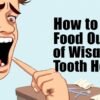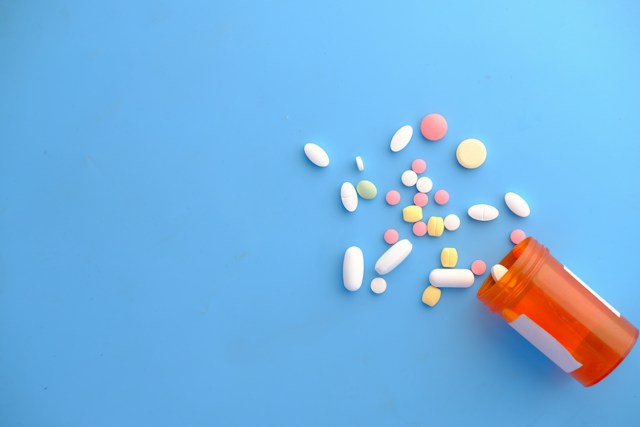There are certain medicine cabinet must-haves that everyone should have on hand. Medications include nonsteroidal anti-inflammatory drugs (ibuprofen, Advil), acetaminophen (Tylenol), and cough suppressants with codeine or benzocaine.
But many medications don’t require a prescription and can be bought in grocery stores, pharmacies, discount stores, and airports. These medicines are called over-the-counter (OTC).
Chlorpheniramine:
Chlorpheniramine is an antihistamine that relieves sneezing, itching, watery eyes, or runny nose caused by allergies or the common cold. It also works by narrowing the blood vessels in the nasal passages to alleviate congestion.
A pharmacy provides a compounded version of this medication in a convenient oral syrup formulation. This makes it ideal for pediatric patients and those with difficulty swallowing tablets or capsules.
These Medications are part of the older first-generation OTC oral antihistamines (like diphenhydramine, the active ingredient in Benadryl). It may make you drowsy.
Ibuprofen:
A nonsteroidal anti-inflammatory drug is available in a drug store, ibuprofen relieves pain and reduces fever. It’s available in various forms, including tablets, liquids, and lipid-based soft capsules. It can be found in Motrin, Advil, and Naproxen medicines.
Ibuprofen is an important part of a class of drugs known as nonsteroidal anti-inflammatory medications (NSAIDs). Other members of this group include aspirin and naproxen.
Ibuprofen can treat various symptoms, including headaches, sore throat, and stomachaches. It also helps with aches and pains associated with rheumatoid arthritis.
Naproxen:
Naproxen is a nonsteroidal anti-inflammatory drug (NSAID) that reduces hormones that cause inflammation and pain. It relieves swelling, pain, tenderness, and stiffness caused by osteoarthritis or rheumatoid arthritis and helps reduce fever. It may be taken alone or in combination with other medicines, such as a stomach protector or a decongestant.
This medicine may infrequently cause serious and sometimes fatal stomach or intestinal bleeding, especially if you are older or take it for a long time. It may also affect your blood pressure and kidneys.
Diphenhydramine:
This antihistamine can help treat hay fever, upper respiratory allergies, and the common cold. It also relieves itchy, watery eyes, runny nose, sneezing, and itching of the skin. It is available in tablet, capsule, oral solution (liquid), and intravenous (IV, into a vein) formulations.
These Medications may make you drowsy. Use caution when driving or operating machinery, and avoid alcoholic beverages while taking this medication.
Some antihistamines contain dextromethorphan (DXM), a drug that can be psychoactive in high doses and cause hallucinations or feelings of euphoria. Check the product labels and talk to your doctor before giving children a cough or cold medication with DXM.
Benadryl:
Benadryl is an antihistamine that reduces the effects of immune system chemicals that cause allergy symptoms like sneezing, runny nose, and watery eyes. It can also treat itchy skin caused by insect bites and hives.
Oral Benadryl products, such as tablets and liquid solutions, can be taken every 4 to 6 hours or as directed on the label. Topical Benadryl creams and gels can be applied up to four times daily as needed but at most six times in 24 hours.
Be sure to talk with a doctor before giving children oral Benadryl for cough and cold medicines containing diphenhydramine. Sudden infant death syndrome (SIDS) has been reported with the misuse of these medications in very young children.
Acetaminophen:
Acetaminophen (pronounced a SEET a MIN oh fen) is the primary ingredient in Tylenol products and one of the most common active ingredients in OTC and prescription medicines. It is a pain reliever and fever reducer. It works by elevating the pain threshold so you feel less pain and lowering your fever by helping your body eliminate excess heat.
Acetaminophen can damage your liver if you take too much, so it is important to read the label and not exceed the maximum daily dose of 4,000 milligrams per day. This is equivalent to 12 regular-strength or eight extra-strength Tylenol tablets.
Oral Decongestants:
Decongestants can help you breathe easier by narrowing your blood vessels. Many of them also contain antihistamines to combat your allergies. Some are long-acting, like phenylephrine (Sudafed), or short-acting, like pseudoephedrine or oxymetazoline. However, these medications may cause restlessness and make it hard for you to sleep. They can also raise your blood pressure, so you should talk to your doctor if you have high blood pressure before taking them.
You can find these medications at your local pharmacy, grocery store, discount store, and airports. They are available OTC to ease your symptoms of a cold, the flu, and allergies quickly and inexpensively.










